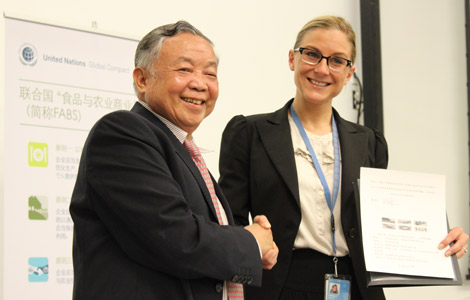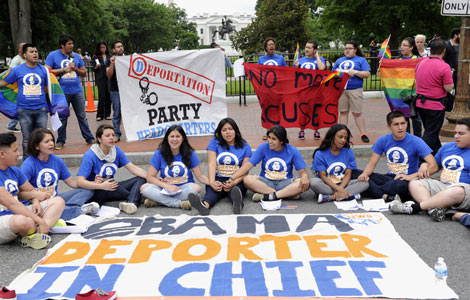Draft rule aims to outlaw IPR abuse, boost innovation
Updated: 2014-06-12 06:52
By Xu Wei (China Daily USA)
|
|||||||||
A new regulation to ban the abuse of intellectual property rights is being considered as anti-monopoly authorities step up legislative efforts following talks with electronics industry leaders Samsung Electronics Co and Qualcomm Inc.
Under the regulation, proprietors would be forbidden from using intellectual property rights to reach agreements for market monopoly purposes.
This includes fixing or changing product prices and limiting production or sales levels.
The regulation, drafted by the State Administration for Industry and Commerce, is available for public comment until July 10.
The authority unveiled the new regulation after two rounds of opinion-gathering from government departments and high-tech firms in China and overseas, including Samsung and Qualcomm as well as anti-monopoly bodies in the United States and the European Union.
China's three anti-monopoly bodies - the National Development and Reform Commission, the Ministry of Commerce and the State Administration of Industry and Commerce - have intensified their anti-monopoly efforts since last year.
US-based cellphone chipset manufacturer Qualcomm is being investigated by the NDRC for alleged price-fixing. The company has long faced complaints from Chinese mobile phone sellers for its tough stance in pricing negotiations.
The draft regulation also forbids proprietors from using intellectual property rights to reach monopoly agreements that fix prices, or on the lowest price for reselling products.
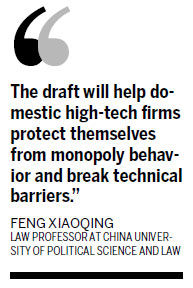
The regulation is widely considered a detailed interpretation of a clause in the Anti-Monopoly Law, which states that the law will apply to IPR abuse.
Wang Xianlin, deputy dean of Shanghai Jiao Tong University Law School, said the use of the Anti-Monopoly Law on intellectual property rights is a very complicated and sensitive issue, and the country still lacks law enforcement experience in this area.
Overprotection of intellectual property rights also results in a lack of public scope in research fields, leading to a shortage of technical innovation and overpriced products.
The draft regulation also bans tying product sales and giving proprietors in similar positions different treatment through the use of intellectual property rights. It bans monopoly behavior through the use of patent pools and collective management of copyright.
Proprietors found to have reached monopoly agreements to limit competition using intellectual property rights will have their illegal gains confiscated and be fined up to 10 percent of their yearly sales volume.
Feng Xiaoqing, a law professor specializing in intellectual property rights at China University of Political Science and Law, said the draft regulation, if enacted, will boost technical innovation in China.
"China is still relying overwhelmingly on imported foreign technology. The draft will help domestic high-tech firms protect themselves from monopoly behavior and break technical barriers," he said.
xuwei@chinadaily.com.cn
(China Daily USA 06/12/2014 page6)
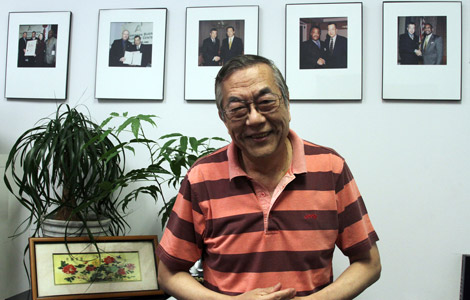
 Asian-American business professionals to be honored
Asian-American business professionals to be honored
 Air China makes maiden direct flight to Washington
Air China makes maiden direct flight to Washington
 2014 Electronic Entertainment Expo kicks off in LA
2014 Electronic Entertainment Expo kicks off in LA
 China, US should rebalance economic strategies: expert
China, US should rebalance economic strategies: expert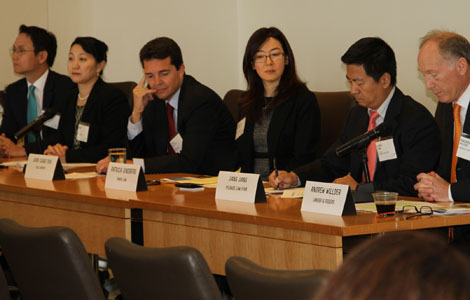
 China's reforms offer opportunities, challenges: panel
China's reforms offer opportunities, challenges: panel
 Chinese-American Girl takes over Google's homepage
Chinese-American Girl takes over Google's homepage
 United goes direct to Chengdu
United goes direct to Chengdu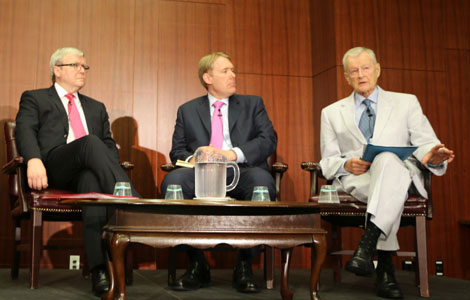
 China-Russia-US triangle discussed in Washington
China-Russia-US triangle discussed in Washington
Most Viewed
Editor's Picks

|

|

|

|

|
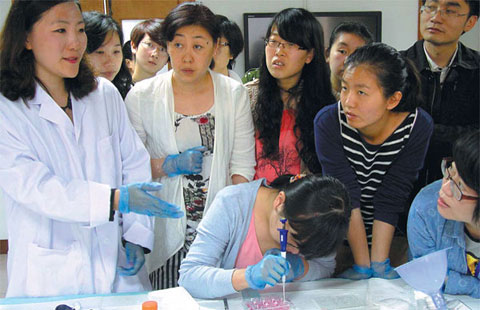
|
Today's Top News
Asian Americans concerned about bill to change NYC specialized school admissions
Sino-US ties reach new plane as flights expand
US clearly in the wrong over 'human rights'
Opinion: US adrift on China
China, US ink deals on energy efficiency
Chinatown leaders, NYC officials to be honored
National security adviser defends US leadership role
Air China links Beijing, Washington
US Weekly

|

|
